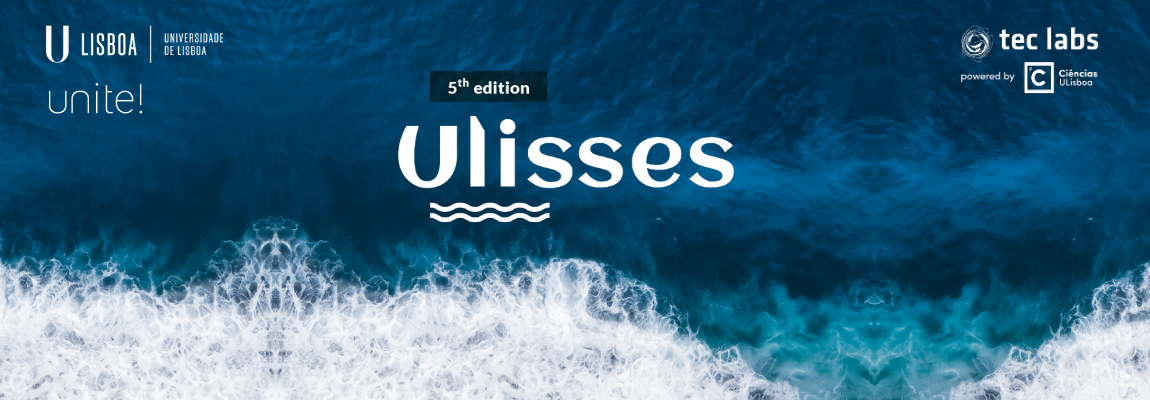Once again, Tec Labs played an active role in the ULisses Challenge 2025, an ambitious international initiative hosted by the University of Lisbon within the framework of the UNITE! alliance (University Network for Innovation, Technology, and Engineering). ULisses promotes interdisciplinary collaboration and real-world problem-solving through an immersive, hands-on learning experience. This year’s edition brought together students from national and international universities to form multidisciplinary teams, working intensively over a three-week program in Lisbon. Their mission: to develop innovative solutions to tackle plastic pollution in the Southern Ocean, specifically focusing on plastic nurdle spills – a growing environmental threat with global impact.

Throughout the program, Tec Labs led a series of dynamic workshops and interactive sessions designed to foster creativity, teamwork, and strategic thinking. The first day of activities began with a team-building session, where students engaged in playful and collaborative exercises such as a bingo icebreaker to help them get to know each other better, and a blindfolded obstacle course where one member of each team had to rely entirely on the vocal guidance of their teammates. These activities were designed to build trust, improve communication, and strengthen team dynamics from the very beginning.

On the following day, Tec Labs facilitated a hands-on design thinking workshop that challenged students to adopt a human-centred approach to problem-solving. Participants took part in classic creative challenges, including the spaghetti and marshmallow tower, which tested their ability to prototype under pressure, and an empathy-based task in which they designed a personalised wallet for a teammate based on quick user interviews and rapid iteration. These exercises laid the foundation for meaningful collaboration and helped shift perspectives toward user-oriented innovation.

This year’s student teams were called to address three demanding goals:
1.Characterize the spatial extent of a major nurdle spill in the Ross Sea.
2.Assess the biological impact on the surrounding Antarctic food web.
3.Develop innovative technologies to prevent, detect, or remove nurdles from marine ecosystems.
Tec Labs supported the teams throughout the challenge, particularly during project check-up moments focused on the third goal, helping participants refine ideas such as nurdle collection systems, biodegradable alternatives, early detection technologies, and filtration solutions. These sessions offered space for constructive feedback and creative redirection, ensuring that the proposed solutions were both ambitious and grounded in feasibility.
To further connect the teams’ work with real-world perspectives, Tec Labs organised a stakeholder session featuring three expert professionals who provided strategic insights and practical feedback on the students’ approaches to the three challenge goals. This exchange proved invaluable in helping the teams improve their proposals and better understand the broader implications of their solutions.
In the final week of the program, Tec Labs returned to lead a presentation/pitching workshop designed to help students articulate their ideas clearly and compellingly. Using interactive quizzes and a lively pitch roulette, participants explored effective storytelling techniques and honed their public speaking skills, ensuring that their final presentations would be both technically strong and engaging.

All the work and dedication culminated in the final presentation session, held at TTC@ULisboa on Friday, July 25th. The teams showcased a diverse set of creative and technical solutions, including sensor-equipped lashing rods to help prevent future container spills, drone and satellite-based systems for spill detection and mapping, biodegradable polymers to reduce the persistence of nurdles in marine environments, and practical mechanical removal tools such as the nurdle net.

From left to right: Teams Circe and Cyclop.

From left to right: Teams Calypso and Sirens.

From left to right: Teams Charybdis and Scylla.
The jury praised the scientific rigour, innovation, and collaboration demonstrated by all participants, but in the end, there can only be one winner. Congratulations to Team Sirens!

As this edition of ULisses comes to an end, Tec Labs proudly reflects on its contribution to a truly transformative experience – one in which knowledge was shared, innovation was sparked, and young minds came together around a common goal: to protect our oceans and help build a more sustainable future. We are proud to have been part of this journey, and we look forward to the next edition!







